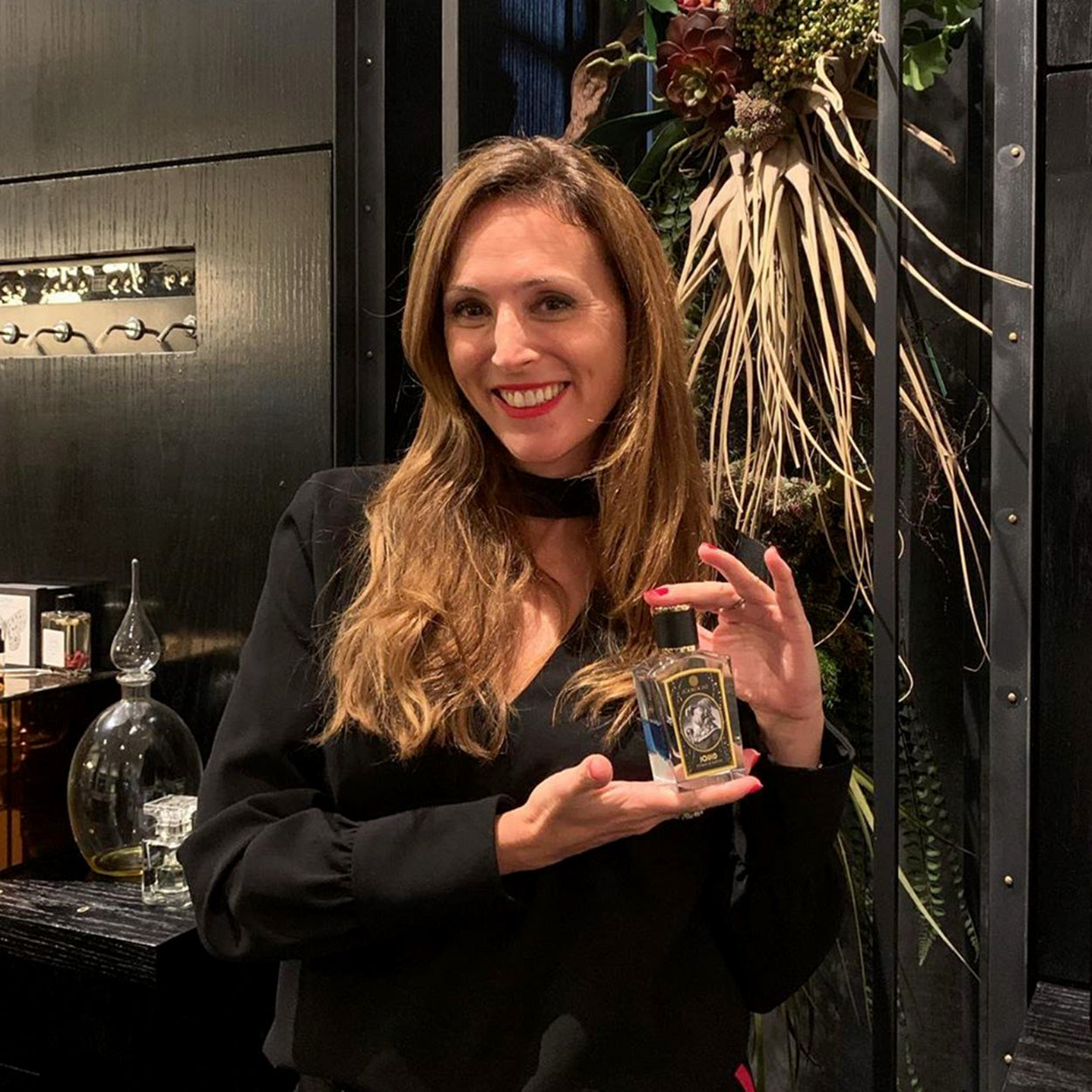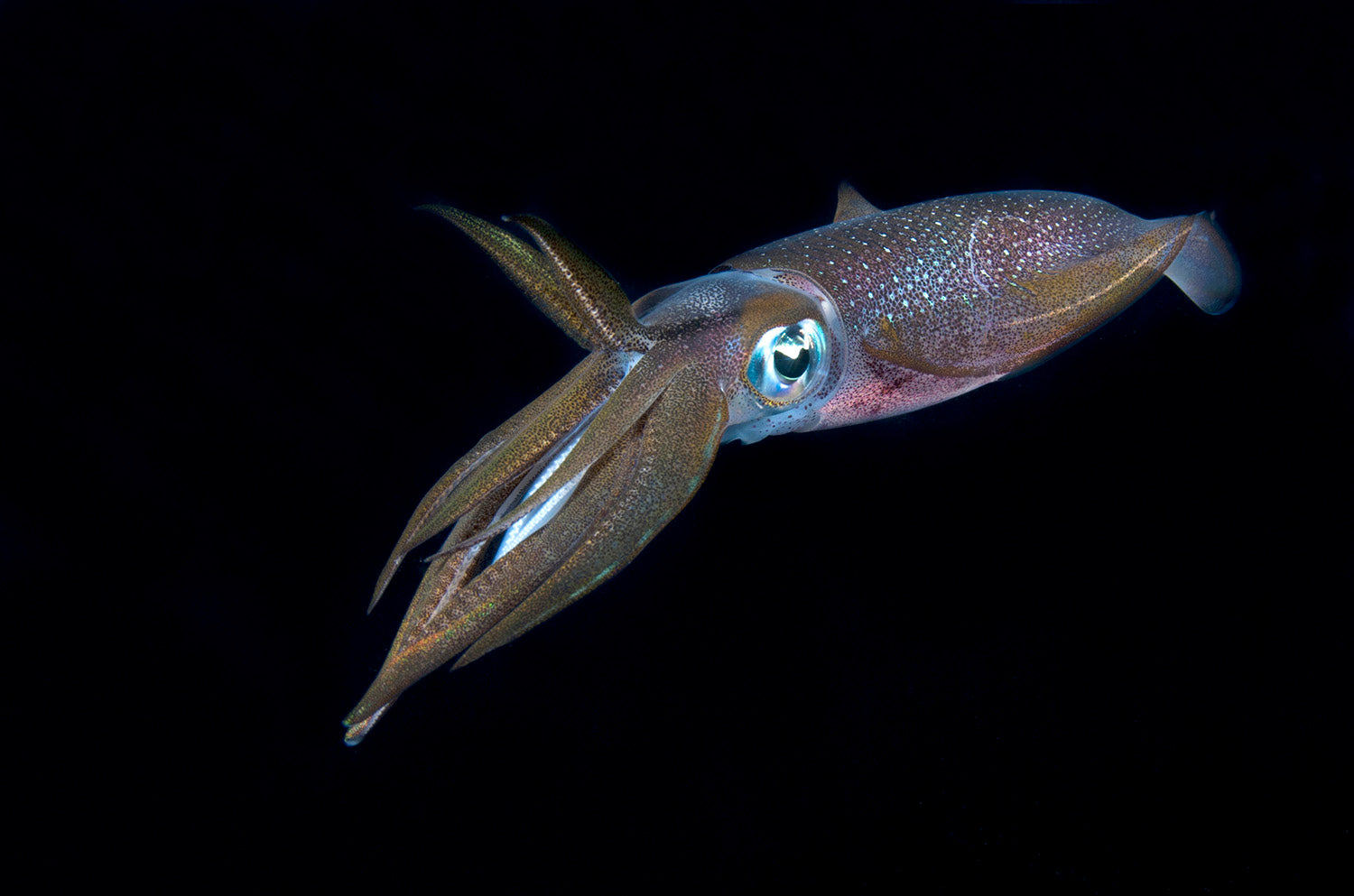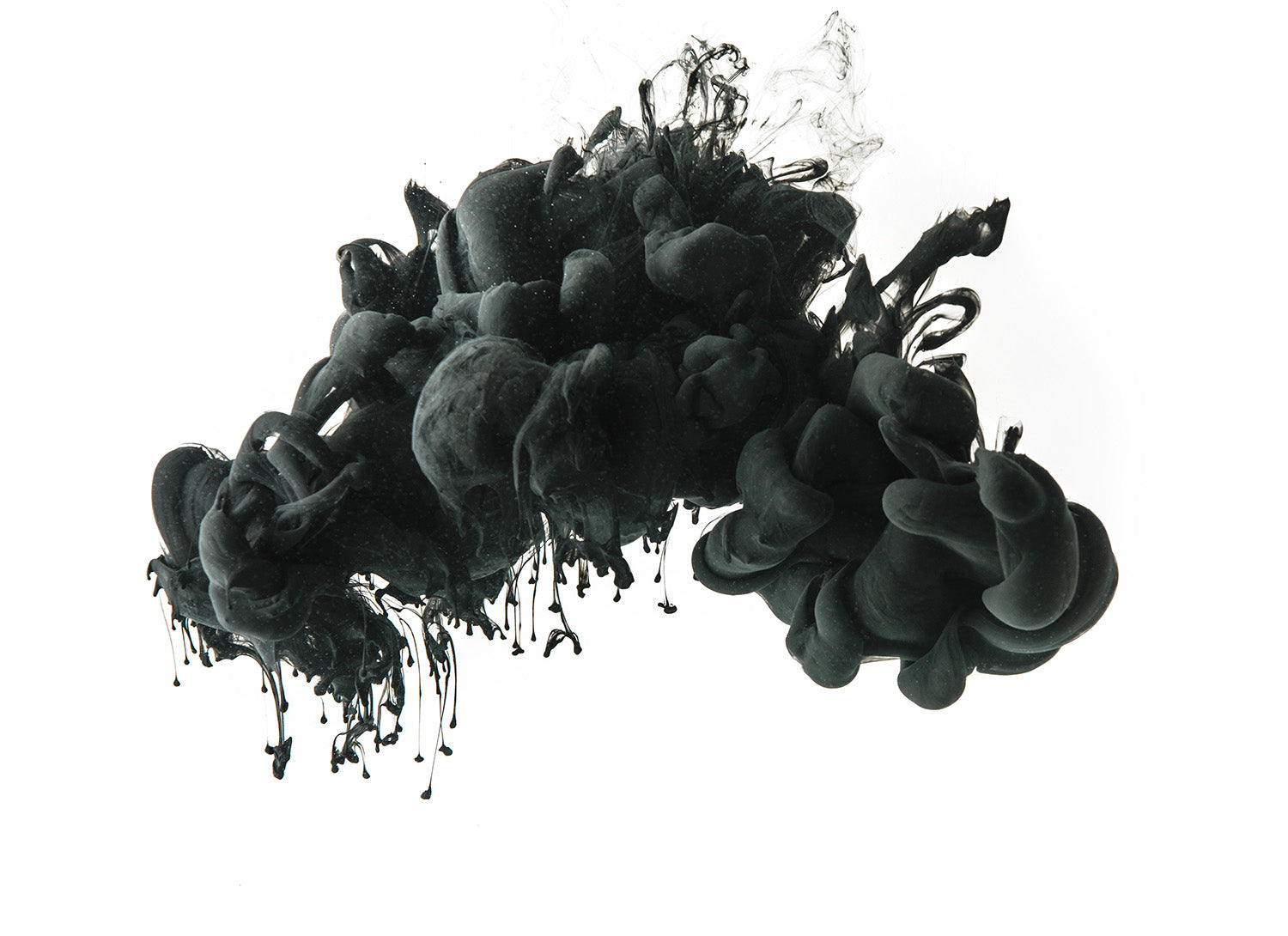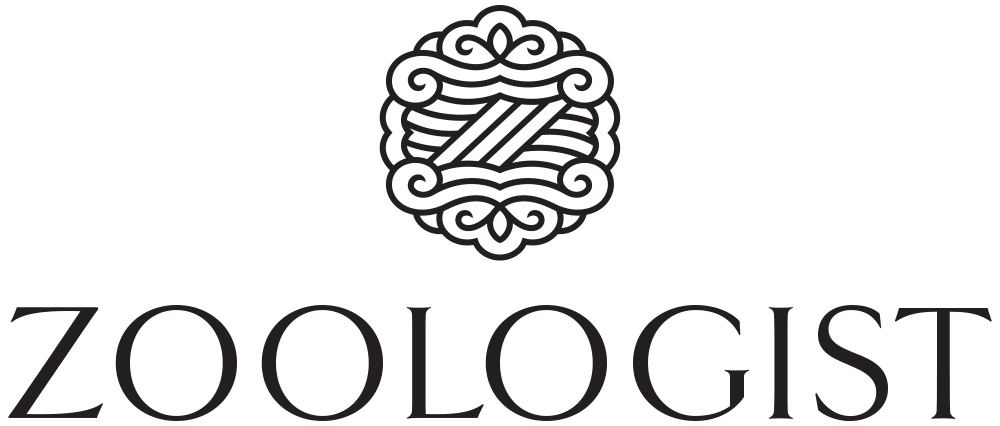October 26, 2019
Hi Celine, could you tell us about yourself?
I grew up in Grasse, France in the ’80s, when the heart of the city was still beating thanks to the fragrance industry and the entire city’s smell varied according to the distillation of raw materials for seasonal arrivals. No one in my family was related to this industry, and I didn’t go to ISIPCA (perfumery school). Still, as a child, I wanted to be part of this industry one day – on the brand side, though, because in the ’80s and ’90s the ad campaigns and launch events were stupendous! Therefore, I went to business school and interned at Chanel, Dior, Vuitton and Mane, where I discovered the “backstage” world of perfume creation. I LOVED it. From that moment on, my goal was to gain the olfactive knowledge I needed to become a perfumer.
How long have you been a perfumer? Did you always aspired to become one? What is your favourite perfume?
I have been a perfumer, including my time at IFF perfumery school, for 17 years. As a child, I had high interest in perfumes. My nanny’s husband worked in the Roure factory, and when he came back home his clothes were impregnated with the aromas of raw materials. I collected fragrance bottles, really digging for the rare ones, and my grandfather (who loved gardening) used to tell me: “A garden, you have to smell it, look at it, taste it, touch it and hear it.” So I received an education in nature’s beauty and resources. Plus, all the women in my family were either very sophisticated and loved rich perfumes that would leave a huge sillage, or adventurers who would bring back exotic olfactive treasures they’d found in some remote place. That’s why I have a taste for decadent, opulent, and sensual fragrances, mostly in the oriental or amber family. Otherwise, I like big white florals. Alas, my all-time favorite, Versace Blonde, has been discontinued.
How did you become a perfumer at IFF?
It was really after my internship at Mane that I suddenly put all my effort into getting olfactive training to become a perfumer. It was with this mindset that I joined IFF in Milan, Italy, where I studied for two years after work hours, smelling and classifying raw materials and market products with someone who trained at Roure’s school back in the day. I then passed the internal competition to enter the newly re-opened IFF perfumery school program, where I was trained at IFF creative centers in the Netherlands, New York, Paris, and Grasse. So my background is kind of unusual for a perfumer. I’m grateful to IFF for being attracted to an unorthodox profile like mine.

IFF is one of the most renowned big aroma chemical companies in the world. It hires a lot of people, but do they have a lot of perfumers? Is it hard to become an IFF perfumer? What does it take to become one? Do they train and hire new perfumers every year?
At IFF, we have worldwide around 120 creative perfumers across categories, including around 30 in fine fragrances.
Fun fact: there are actually fewer perfumers in the world than Nobel Prize winners!
It is very hard to become a perfumer, first because the opportunities for being trained are very slim. Then there is a lot of competition, and not everyone trained will become a perfumer. It is a very long and slow craft to learn. One needs to have not only artistic talent, but also a strong psychological mindset. About 95% of what we do goes into the garbage, and we interact with people all day long whose job is to criticize our creations.
Hence resilience, patience, combativeness, and being a good listener are key qualities to have, as well as an indestructible faith in yourself and your work. IFF is constantly training a pipeline of young perfumers according to the category and geographical needs of the company. It’s also partnering with ISIPCA on a special program. Each year, some are hired by IFF.
Can you describe a typical day for an IFF perfumer? How many different work-in-progress perfumes do you juggle each day? What is the average number of revisions it takes to finish a perfume?
I usually like to start my day composing new formulae. I let the freshly compounded reworks sit for at least half a day (in the case of rush projects, we usually don’t have much time!). I am very productive in the morning and don’t like to be disturbed. I am always excited to smell my work with evaluators. The most exciting part is when we put the best reworks on skin and pick one or two to present to the brand. During my day I interact mostly with my lab assistant and evaluators, with sales to prepare strategy, with marketing to work on concepts and olfactive stories, and with people responsible for toxicology and consumer insight. One of my other favorite times during the day is when we meet with the brands to present our work. That’s when all the detailed work done backstage takes on life in the proper context. There is constantly this dual dialogue: internal and external. When one of them is missing, it shows in the final product. It’s like something is not aligned.
At IFF, perfumers have to juggle many projects, covering the whole range of the olfactive offerings out there: from specialty to masstige, from prestige to niche. Perfumers need to be agile to work on different segments. Sometimes one perfumer is working on several olfactive propositions for the same project.
There is nothing like an average number of revisions. Each project is different. It may take up to several hundred of revisions to create a blockbuster that will be tested in different markets, with often several perfumers collaborating on the same olfactive direction. This is not the case for less-complex projects. Usually, when a perfumer truly invents an idea that is not inspired from something that already exists, it can take several years of work to develop an edgy accord into a finished product. When I read reviews, it makes me laugh when people think that mainstream projects are easier to win. It is completely the opposite! Because the perfumer usually has to start with a strong and innovative accord with a great story, and then – and this is the difficulty – she or he has to transform it into a well-liked complex fragrance that is highly adopted in worldwide markets known to have very different olfactive preferences.

Above: Celine Barel at Perfumarie New York. Credit: Perfumarie Instagram
To my knowledge, in the perfume industry it is not common to credit the perfumer. Fragrantica’s database lists about 15 fragrances designed by you. That seems to be a small number. Is it safe to guess you have designed many more, but they are not credited? What are your thoughts on that? What are some of the more special perfumes designed by you?
It’s true. A few years ago, it was not a widely adopted trend to name the perfumer, especially if they were younger. Today, some brands still do not want to credit the perfumers, and we oblige them. Among others, I have created for Jo Malone, Tory Burch, Calvin Klein, Hugo Boss, Lancome, Loewe, Oscar de la Renta, Aramis, Dunhill, and Jil Sander.
Lately, thanks to the niche world, with Frederic Malle being the innovator in the matter, perfumers, like designers in fashion, have started to become an acknowledged asset to promote the universe of a fragrance. This has helped to bring back the “art of perfumery”, with this underlying idea there is true craftsmanship and a visible creator behind a perfume creation.
The fragrance industry has changed a lot over the past few decades. There are now many niche perfume brands and self-taught perfumers creating their own indie perfumes. Do you think a professionally trained perfumer has significant advantages and knowledge in terms of perfume composition? On the other hand, do you think indie perfumers are more likely to create more unique, creative or bold scents because they are not bounded by vigorous training?
The fragrance industry has suffered for many years because of the absence of a clear definition of what a “perfumer-creator” is. Therefore, a few years ago, the French Society of Perfumers took the initiative to establish a strict code of what officially defines the skills and competencies of a perfumer-creator.
Receiving academic training has never stopped anyone from breaking the rules, innovating, or being bold. Quite the opposite. It is easy to shock and draw public attention when you pile up odours or/and overdose them through a lack of knowledge; it is another one to translate a vision, an intention, through a composition and find a new “disturbing harmony” where the shock is right, the balance is right.
The ability to create fragrances that are considered unique, creative or bold comes from two main conditions: first, the absence of olfactive tests; second, the opportunity to work directly with the brand founder or artistic director, which allows you to collaborate with the person in full charge of the brand’s vision. Usually that person is a risk-taker who is passionate about fragrance and eager to innovate. Last but not least, we usually work in a niche with a much higher price point and with no filtering layers to please at different stages, whose individual tastes may not be always aligned.
So, independently of being created by professionally trained or self-taught perfumers, the niche/indie market has done an amazing job at reinvigorating the whole world perfumery market in all its segments.
This “renaissance” is due to “riskier” fragrances driven by stronger olfactive statements, ones that are more creative and often more qualitative in terms of raw materials, have great marketing stories and /or packaging, and more selective distribution. Nowadays, people do not want to smell like everybody else, especially the younger generation. They’d rather stay away from the “best testers” to explore more scents off the beaten track.

Let’s talk about the perfume, Squid, shall we?
The collaboration between Zoologist and IFF was perhaps very serendipitous. About a year ago (2018) a perfume shop opened in New York and Zoologist was one of the brands that they carried. Since IFF has an office in New York, they discovered Zoologist when they visited the store. Subsequently, the management of IFF New York contacted me to ask if I was interested in a collaboration. To be honest, I was shocked, because I thought big aromachemcial companies like IFF were only interested in big perfume houses that sell millions of bottles. Of course, I didn’t want to pass up the opportunity, for I had always wondered what it was like to have a perfume designed by “the big one”. The very kind client manager (who was the middle person between me and the perfumers) asked me for some concepts for a perfume that I wanted to make. I gave her three. Those three fragrances were all very challenging to design, and the briefs had been sitting on my computer for a few years. A week later she told me that all of them had been snatched up by three different perfumers! I expected that only one perfume would be chosen. She also told me the names of the three perfumers and who would be designing which animal, and you were doing Squid.
Now, I have to ask, how does a client’s brief usually funnel down to a perfumer? Is it common that a perfumer gets to choose which perfume she wants to design, or does management make the choice?
Regarding high-stakes briefs, there’s a strategy from management to have this or that perfumer work on it. Clients can also request specific perfumers to work on their creations.
As far as Niche’s briefs are concerned, the perfumer’s desire to work on it is key. The customer-perfumer relationship is crucial and usually must be much tighter in order to create a strong olfactive statement.
In my case, I loved your brand. I loved how the animals were portrayed. It speaks to my “Peter Pan” side, a fantasy world where animals are true characters and have an olfactive identity. It reminds me of the Victorian age, one of my favorite historical periods.
And why did you choose Squid?
I absolutely wanted to work on Squid. Some people were saying to me, “Squid? Yuk! No one wants to smell like a fish market!” I cannot understand how people can get so literal!
Immediately, in my mind I was in Jules Verne’s A Thousand Leagues Under the Sea, with a frightening giant squid coming from the deepest part of the ocean. It took me to Japan or China, as supposedly the giant squids live in those waters, so I knew there should be some incense in the accord. Squid bone is the starting point for ambergris: the sperm whale produces a fatty substance to wrap the bone. And coincidently, maybe a month before receiving the Squid brief, while I was swimming in Nikki Beach in Dubai, I hurt my foot walking on a huge squid bone. I smelled it, and it was beautiful, more pungent, sweet and grainy, like Tonka, very salty and rawer than ambergris. I brought the squid bone back and we did a headspace analysis on it.
Therefore, Squid is really based on three pillars: the Living Squid Bone (or headspace) accord in the dry down, the solar saltiness (an airy, salty, ethereal floral impression) in the heart, and mystical frankincense on top. Then you asked me to emphasize the melancholic and inky feeling, as well as the spicy intro. It brought me back again to Jules Verne, who wrote at the height of Romanticism. So I envisioned an olfactive impression that would translate at the same time a calm and stormy mind, going from a deep dark mood to a bright happy place. I was listening to Beethoven a lot to put me in this Romantic mood. And we did it!
I’d also imagined that no one would like to smell like a fish market or a fishy squid. So how did you tackle this project – a perfume named Squid – to make it representative but also wearable?
When I create a fragrance, I always keep in mind that no matter how creative the initial concept is, in the end it will be worn by a person who needs to feel confident about wearing it. A fragrance is like a suit or a dress: it can be creative and edgy, but no one wants to feel uncomfortable wearing it.
Smells have been through centuries, cultures, classes. They are a powerful social marker. It is a matter of being accepted or rejected. Tell me which fragrance you wear, and I’ll tell you which social group you belong to – or, more realistically, which one you’d like to belong to!
What exactly is “Solar Salicylate” (a note used in Squid)?
Salicylates are raw materials naturally present in nature. They give an ethereal and powerful airy effect, ranging from salty to green or floral facets. In Squid, they are massively used to convey the salty effect and carry the formula structure.

How did you design the ink accord? Could you reveal a little bit what goes into that accord?
When you asked me to push the ink accord, I worked with the IFF tool “Scentemotion”, which helps the perfumer determine which raw materials are linked to the colour blue. From my own experience of preparing “nero di sepia” sauce for pasta, it had to smell salty and velvety at the same time. There is a proper density to achieve in the olfactive texture of the ink accord. I used a combination of resins and balsams.
Now that the scent is finished, how do you describe it?
I love how with you we created this new kind of “marine” family, miles away from the typical marine citrusy ozonic accord found in the classics! Squid is a marine amber, fresh and sensual.
Did you surprise yourself with Squid? I was, because when I first learned about the perfumes designed by you, they seemed to be more on the mainstream side. But people who had smelled Squid all told me it was very “niche”. What scents do you enjoy creating more, niche or commercial mainstream?
Working on the American fragrance market, I was asked to focus on the more commercial segments. I rarely worked for niche brands in the past, except for Aesop, Jo Malone, Atkinsons or Diana Vreeland. But I did a lot of artistic collaborations to quench my desire to create edgy fragrances, as I did with D.J. Kid Koala when I did his olfactive opera for the Luminato Festival in Toronto, Canada, or with Robert Wilson on the theme “Voluptuous Panic”. And Serge von Arx, with whom we did two workshops in Norway and in Switzerland on olfactive scenography.
Now I’m working much more on niche brands, and I absolutely love it. Stay tuned!
If you would design any perfume for Zoologist, which animal would you pick?
Aaaaah! I have some in mind with the full olfactive story! One is very, very, edgy! My work on olfactive scenography helps me a lot to give a strong olfactive context linked to the animal. There’s one in particular I would LOVE to execute! It’s about speed.
Thank you so much!
